A Dispatch from Reuters

Brief Synopsis
Cast & Crew
William Dieterle
Edward G. Robinson
Edna Best
Eddie Albert
Albert Basserman
Gene Lockhart
Film Details
Technical Specs

Synopsis
As a young boy in early Nineteenth century Germany, Paul Julius Reuter is impressed with the new telegraphic system and the need for the rapid transmission of news. Sixteen-years-later, in England, Reuter, with his friend Max Wagner as a partner, starts his pigeon post to link telegraphic stations in Europe. Although faced with ridicule and skeptism, Reuter is aided in his project by Ida Magnus, who later becomes his wife, and the service finally succeeds in attracting bankers who want early stock market quotations. When his pigeon post becomes obsolete with the bridging of Europe by telegraphic lines, Reuter embarks upon a revolutionary new plan to transmit the news by wire to newspapers. At first his new plan is also met with skepticism, but it is widely embraced after he is the first to report the peace speech of Napoleon III. Reuter faces yet another threat when a rival firm, Anglo Irish, builds a line which is able to transmit the news faster than Reuters. With all his savings and money borrowed from his friend, Sir Randolph Persham, Reuter secretly builds a line which transmits the news directly across the channel, and his first story is the news of President Abraham Lincoln's assassination. Reuter's subscribers in London print the news, which causes the stock market to crash. Because no other news of the tragedy has been received, however, Reuter is accused of fabricating the story and Parliament begins a debate about censorship of the press. In the middle of the debate, the official notice of Lincoln's death arrives, vindicating Reuter's reputation and the principles of free speech.

Director
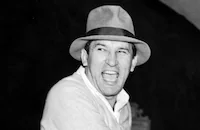
William Dieterle
Cast

Edward G. Robinson

Edna Best

Eddie Albert

Albert Basserman

Gene Lockhart

Otto Kruger
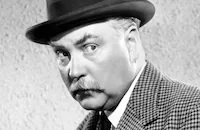
Nigel Bruce

Montagu Love

James Stephenson

Walter Kingsford
David Bruce

Dickie Moore
Billy Dawson

Richard Nichols
Lumsden Hare
Alec Craig
Henry Roquemore
Paul Weigel
Joseph Stefani
Wolfgang Zilzer
Stuart Holmes
Sunny Boyne
Ernst Hausman

Grace Stafford
George Ovey
Herbert Heywood
Irene Colman
Leda Nicova
Florence Dudley
Georges Renavent
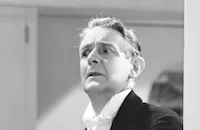
Leonard Carey
Robert Homans
George Sorel
Demetris Emanuel
Eddie Dew
Michael Audley
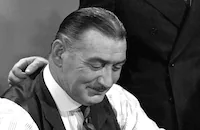
Ed Keane
Cliff Clark
Pat O'hara
Alphonse Martel
Harry Stubbs
Gordon Hart
Thomas Mills

Wilfred Lucas
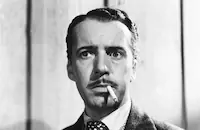
Boyd Irwin
Cyril Thornton
Georgia Caine

Mildred Coles
Theodor Von Eltz

Harry Cording
Frank Shannon

Charles Irwin
David Thursby
Lionel Pape
Kenneth Hunter

Holmes Herbert

Lawrence Grant

Leonard Mudie
David Clyde
Louis Adlon
Pat O'malley
Pat Flaherty
Alec Harford
Ernie Stanton
Norman Ainsley
Cyril Delevanti
Hal Taylour
George Cathrey
Douglas Gordon
Charles Knight
Frederick Murray
Bobby Hale
Frank Benson

Mary Anderson
Tommy Baker
Jacques Vanaire
Crauford Kent
Fred Mellinger
Ray De Ravenne
Nina Borget
Crew
Al Alleborn
Henry Blanke
Robert Burke
Leo F. Forbstein
Hugo Friedhofer
Jo Graham
Anton Grot
Byron Haskin
George Hopkins
James Wong Howe
Milton Krims
Warren Low
Orry-kelly
C. A. Riggs
Jonah M. Ruddy
Max Steiner
Jack Sullivan
Jack L. Warner
Perc Westmore
Wolfgang Wilhelm
Valentine Williams

Videos
Movie Clip



Trailer
Film Details
Technical Specs

Articles
A Dispatch From Reuters - A Dispatch from Reuters
A Dispatch from Reuters (1940) tells the story of this man, a German-born British immigrant who wanted to "make the world a little smaller." He started his business in 1850, using carrier pigeons to fly stock prices between Aachen and Brussels. Two years later he had opened an office in London to transmit stock quotations between London and Paris via a new underwater cable. Eventually he was gathering information by means of a large telegraph network and feeding news to the London papers. All the while he built a reputation for speed and accuracy. It was an astounding achievement to relay a major speech by French Emperor Napoleon III (Louis Napoleon, the nephew of Napoleon Bonaparte) as it was being delivered. Later, he scooped Europe with news of Lincoln's assassination.
The movie covers all these events in typically breezy Warner Bros. fashion, with action spanning 32 years (1833-1865) and jumping among Aachen, Brussels, Paris, London, New York and Washington, D.C. The drama comes not just from Reuter's achievements but from the ridicule and public persecution he received from those who doubted his ideas could work.
Starring as Reuter is Edward G. Robinson, who had recently done another, more famous Warner biopic, Dr. Ehrlich's Magic Bullet (1940). That film, Robinson wrote in his memoir, was his favorite of his own work, but A Dispatch from Reuters ran a close second. Playing in Warner biographies was a notable advancement in Robinson's career. These were the prestige roles, after all, which in the 1930s had been the specialties of George Arliss and Paul Muni. A few more names also returned from Ehrlich, including the fine actors Albert Bassermann, Otto Kruger and Montagu Love, cinematographer James Wong Howe, and director William Dieterle.
Much research went into A Dispatch from Reuters, and art director Anton Grot and set dresser George Hopkins in particular deserving credit. They carefully recreated the first telegraph machine, the mid-19th century interior of the London stock market, and Lincoln's box in Ford's Theater, Washington, D.C., as it looked the night he was assassinated. During the assassination scene, actors speak the exact lines from the play Our American Cousin that were being uttered as John Wilkes Booth fired on the President.
According to the film's original pressbook (held in the Margaret Herrick Library at the Academy of Motion Picture Arts and Sciences), the carrier pigeons used in filming "were the best birds available in southern California." They came from the lofts of Dick Sanders, a noted breeder whose pigeons had won cross-country races. Because such birds know only to fly one way - toward home - scenes of arriving pigeons had to be filmed at Sanders's Calabasas, Calif., ranch, where sets were built duplicating the ones at Warners' Burbank studio.
Cinematographer James Wong Howe was one of most celebrated in Hollywood history. While A Dispatch from Reuters is very well shot, it is not one of his signature films. Howe was shooting six movies a year at this point. After this one, the pace slackened and he was able to make roughly three a year instead. The extra time would result in especially striking, quality work in pictures like Kings Row (1942), Yankee Doodle Dandy (1942) and Passage to Marseille (1944).
Producer: Henry Blanke, Hal B. Wallis
Director: William Dieterle
Screenplay: Valentine Williams (story), Wolfgang Wilhelm (story), Milton Krims
Cinematography: James Wong Howe
Film Editing: Warren Low
Art Direction: Anton Grot
Music: Max Steiner
Cast: Edward G. Robinson (Paul Julius Reuter), Edna Best (Ida Magnus Reuter), Eddie Albert (Max Wagner), Albert Bassermann (Franz Geller), Gene Lockhart (Otto Bauer), Otto Kruger (Dr. Magnus).
BW-90m. Closed captioning.
by Jeremy Arnold

A Dispatch From Reuters - A Dispatch from Reuters
Eddie Albert (1906-2005)
The son of a real estate agent, Albert was born Edward Albert Heimberger in Rock Island, Ill., on April 22, 1906. His family relocated to Minneapolis when he was still an infant. Long entralled by theatre, he studied drama at the University of Minnesota. After years of developing his acting chops in touring companies, summer stock and a stint with a Mexican circus, he signed a contract with Warner Bros. and made his film debut in Brother Rat (1938). Although hardly a stellar early film career, he made some pleasant B-pictures, playing slap happy youths in Brother Rat and a Baby (1940), and The Wagons Roll at Night (1941).
His career was interrupted for military service for World War II, and after his stint (1942-45), he came back and developed a stronger, more mature screen image: Smash-Up: The Story of a Woman (1947); Carrie (1952); his Oscar® nominated turn as the Bohemian photographer friend of Gregory Peck in Roman Holiday (1953); a charming Ali Hakim in Oklahoma (1955); and to many critics, his finest hour as an actor, when he was cast unnervingly against type as a cowardly military officer whose lack of commitment to his troops results in their deaths in Attack! (1956).
As he settled into middle-age, Albert discovered belated fame when he made the move to Hooterville. For six seasons (1965-71), television viewers loved Eddie Albert as Oliver Wendal Douglas, the bemused city slicker who, along with his charming wife Lisa (Eva Gabor), takes a chance on buying a farm in the country and dealing with all the strange characters that come along their way. Of course, I'm talking about Green Acres. If he did nothing else, Alberts proved he could be a stalwart straight man in the most inane situations, and pull it off with grace.
After the run of Green Acres, Albert found two of his best roles in the late stages of his career that once again cast him against his genial, good-natured persona: the fiercly overprotective father of Cybill Shepherd in The Heartbreak Kid (1972), for which he earned his second Oscar® nomination; and the sadistic warden in Robert Aldrich's raucous gridiron comedy The Longest Yard (1974). Soon, Albert was in demand again, and he had another hit series, playing a retired police officer who partners with a retired con artist (Robert Wagner) to form a detective agency in Switch (1975-78).
The good roles slowed down slightly by the dawn of the '80s, both film: The Concorde: Airport '79 (1979), How to Beat the High Co$t of Living (1980), Take This Job and Shove It (1981); and television: Highway to Heaven, Murder, She Wrote, Thirtysomething, offered him little in the way of expansion. Yet, Albert spent his golden years in a most admirable fashion, he became something of activist for world health and pollution issues throughout the latter stages of his life. It is widely acknowledged that International Earth Day (April 22) is honored on his birthday for his tireless work on environemental matters. Albert was married to famed hispanic actress Margo (1945-85) until her death, and is survived by his son, actor Edward Albert, a daughter, and two granddaughters.
by Michael T. Toole
Eddie Albert (1906-2005)
Quotes
Trivia
Pat Flaherty, listed in studio records playing a sailor, was not seen in the movie.
Notes
The working titles of this film were This Man Reuter, The Man from Fleet Street, Man from Fleet Street and A Man from Fleet Street. Paul Julius Reuter (1816-1899) founded Reuter's Telegraph Col, the London based international news agency. Director William Dieterle and producer Henry Blanke also worked together on three other biographical films: 1936's The Story of Louis Pasteur, 1937's The Life of Emile Zola, and 1939's Juarez.















